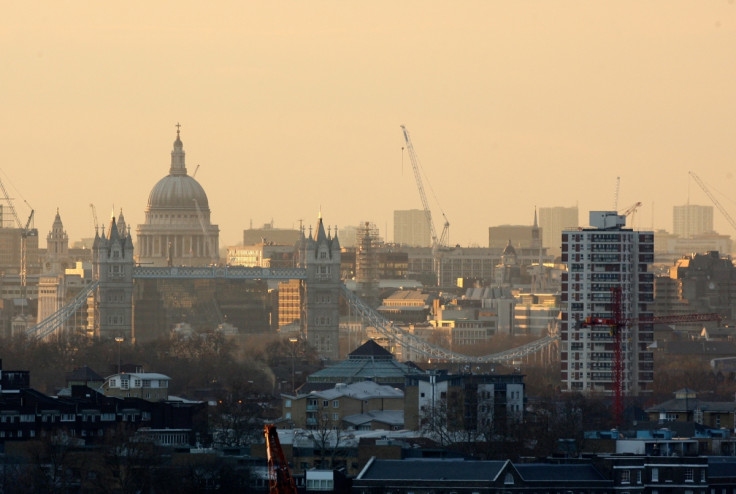Britain's services sector grows at fastest pace in 2017
New work and employment rise at fastest pace in 2017, driving Markit Services PMI past expectations.

Britain's all-important services sector in April grew at the fastest pace recorded in 2017 so far, a survey released on Thursday (4 May) by IHS Markit Economics showed.
Markit's Purchasing Managers Index (PMI) for the services sector rose from March's three-month high of 55 to 55.8 last month, compared with expectations for a 54.5 reading.
Any number above 50 indicates growth and April's figure marked the sharpest increase in business activity since December last year and the ninth consecutive month of expansion for the sector.
The report attributed the rise in services activity to resilient business-to-business demand, new product launches and, in some cases, a further increase in exports.
"While we expect consumer spending to slacken in coming months, with the April survey highlighting continued weakness in sectors such as hotels, restaurants and other household-facing businesses, there's good reason to believe that at least 0.4% GDP growth can be achieved in the second quarter as a whole," said IHS Markit chief economist Chris Williamson.
However, input cost inflation remained high last month, which contributed to the steepest rise in prices charged by service sector firms since July 2008.
The pound has slumped by some 16% against the dollar since Britain voted to leave the European Union in June, making imports more expensive.
"The strengthening of growth and the upturn in prices will bolster calls for higher interest rates," Williamson added.
"But weak growth in the consumer sector remains a concern, and is something which could intensify in coming months as consumer prices rise further."
Scott Bowman, UK economist at Capital Economics, added: "The adverse impact of the fall in the pound was evident in the rise in the prices charged balance to its highest level since July 2008.
"This could be the reason for the fall in the future activity index in April to its lowest level since November."
Meanwhile, both new work and employment grew at the fastest rate on record for this year, with the latter recording the second-best growth since the summer of 2015.
Markit added the increase in employment was only modest, but still one of the fastest rates of expansion seen over the past 12 months, which highlighted renewed hopes of sustained business activity growth over the next 12 months.
Approximately 47% of firms expect a rise in business activity, compared with 12% forecasting a decline, although the degree of optimism hit a five-month low.
Separate reports released earlier this week showed Britain's manufacturing sector grew at the fastest pace in three years in April, while the construction sector recorded the strongest rate of expansion so far in 2017.
Markit's manufacturing PMI surged from 54.2 in March to 57.3 last month, compared with analysts' expectations for a 54 reading and marking the ninth consecutive month of expansion.
Meanwhile, the construction PMI stood at 53.1 last month, compared with analysts' expectations for a 52 figure and with the 52.2 reading recorded in March and marking the fastest pace of growth in the year to date.
Despite a hat-trick of positive readings, Samuel Tombs, chief UK economist at Pantheon Macroeconomics, warned the PMIs' record of predicting GDP growth left much to be desired.
Furthermore, the services PMI does not include the retail sector, which is at the sharp end of the consumer slowdown.
"The Monetary Policy Committee likely will place much more weight at next week's meeting on the weak official data for the first quarter than on April's better PMIs," he said.
"We expect Kristin Forbes to remain alone in voting to raise interest rates."
© Copyright IBTimes 2025. All rights reserved.






















